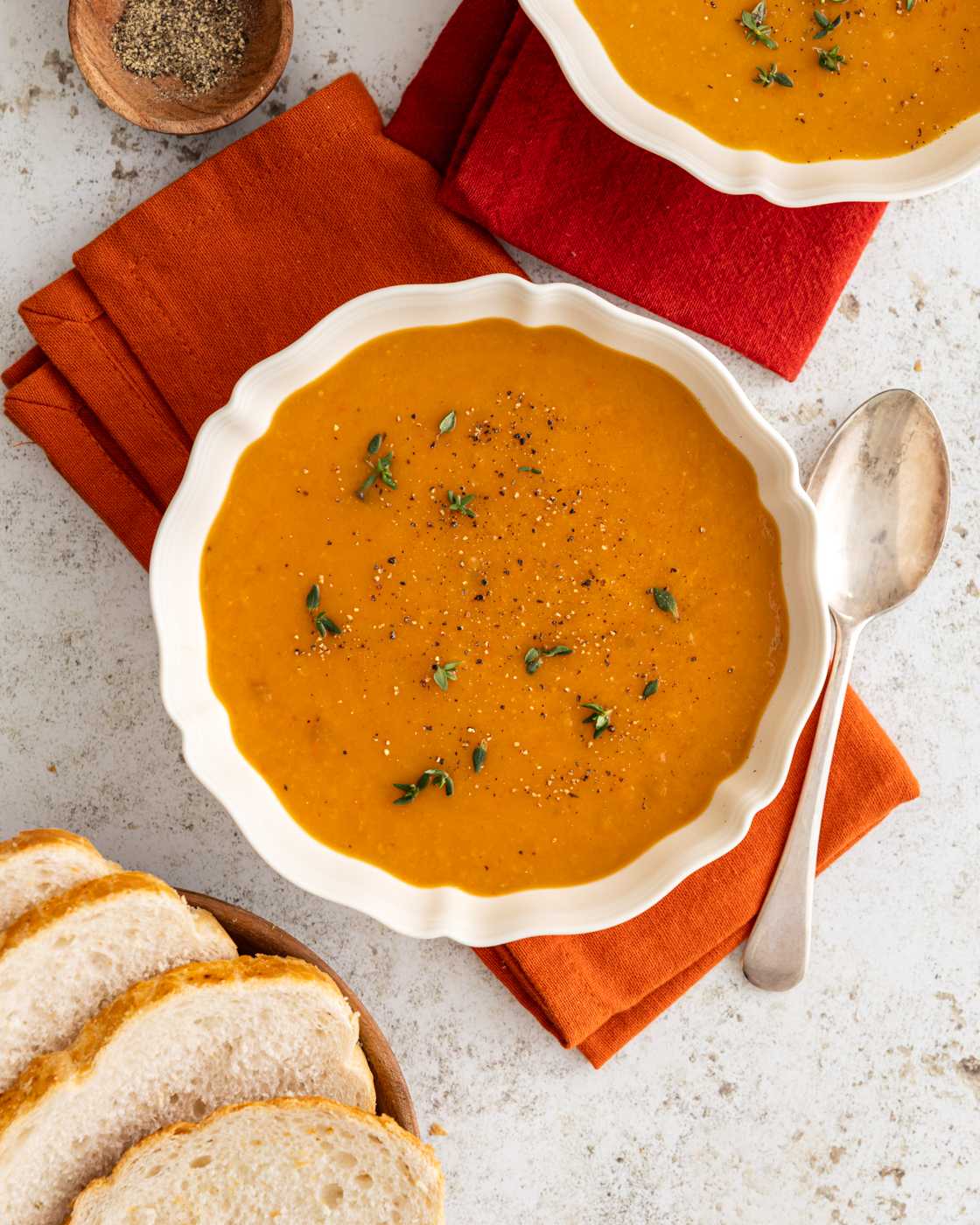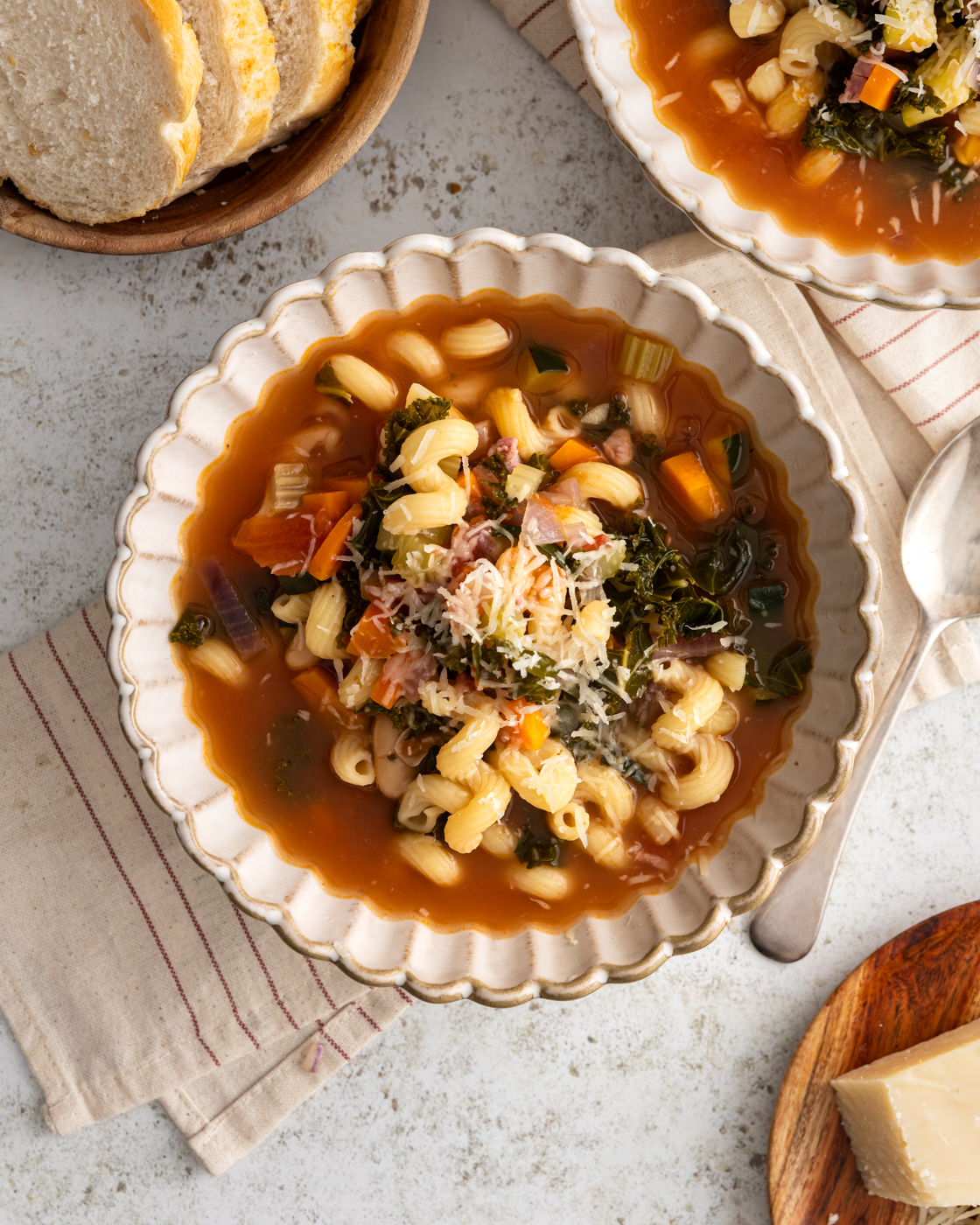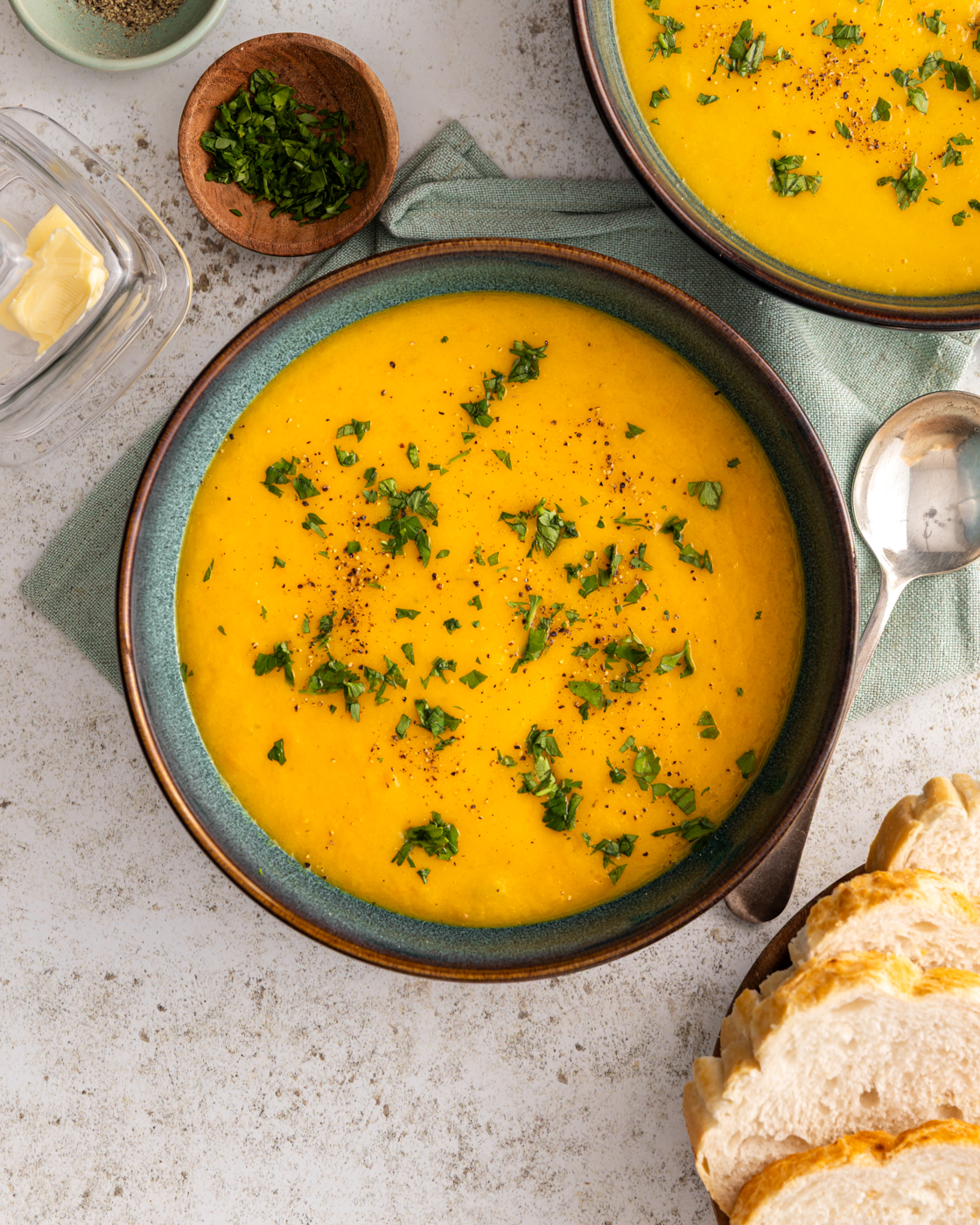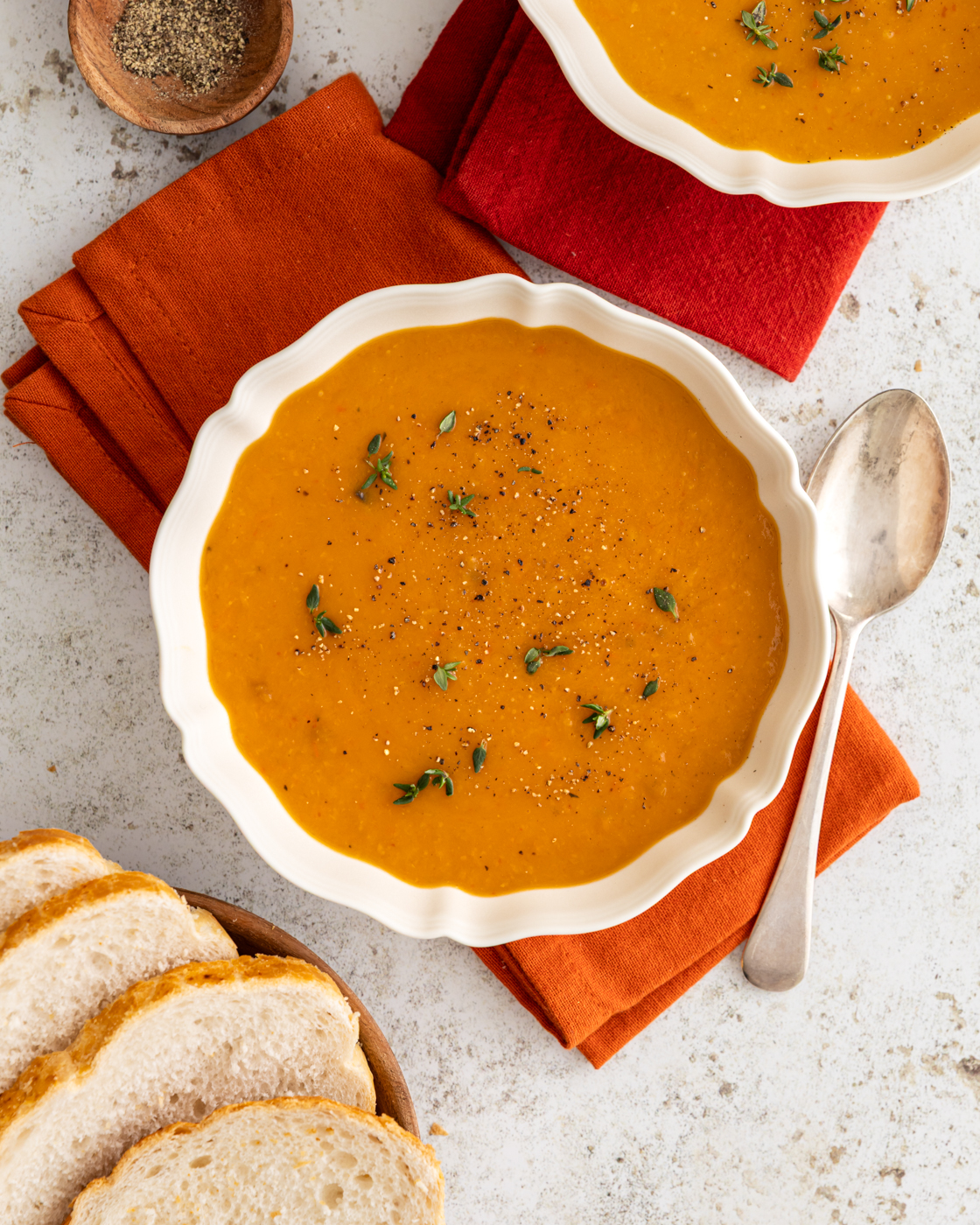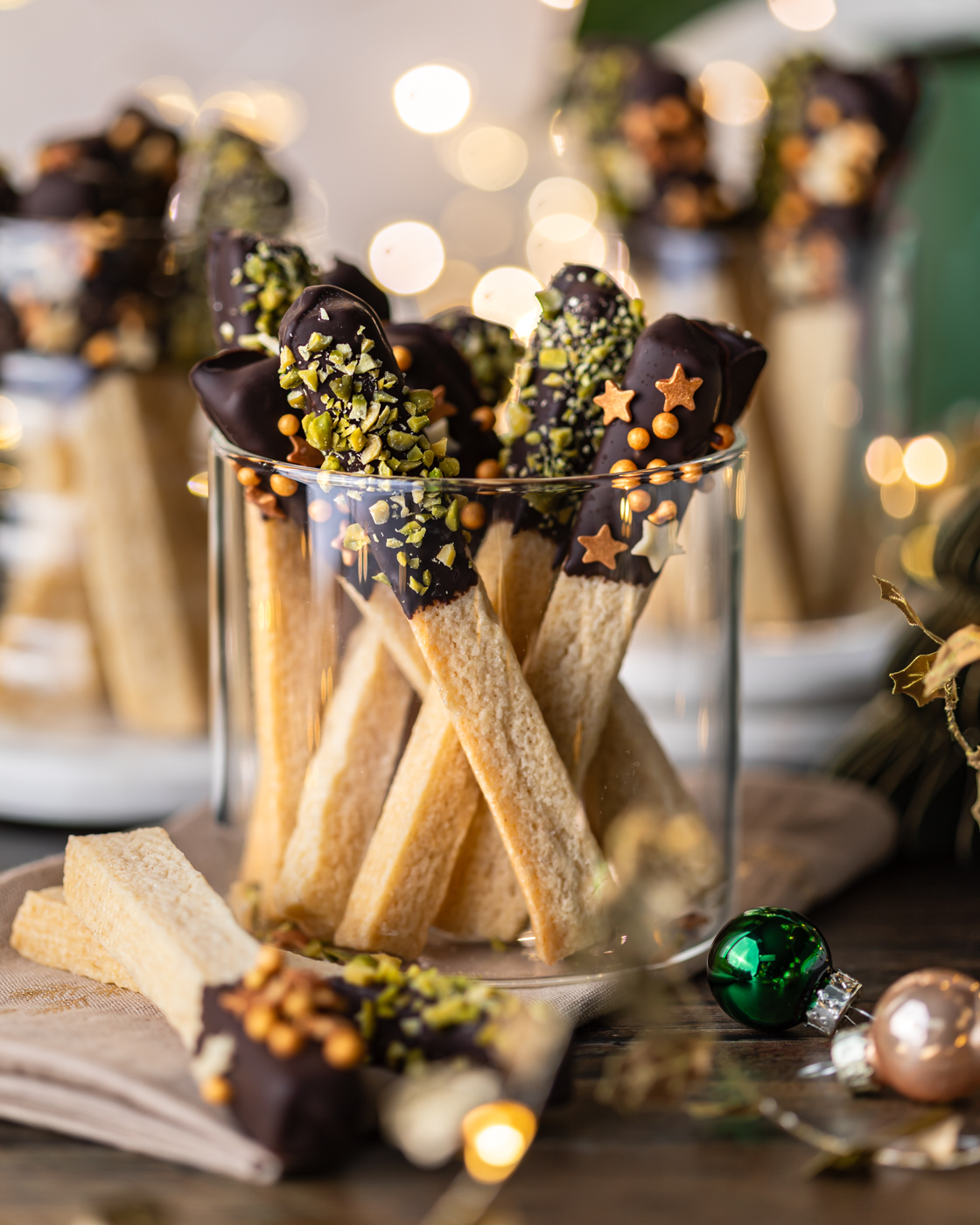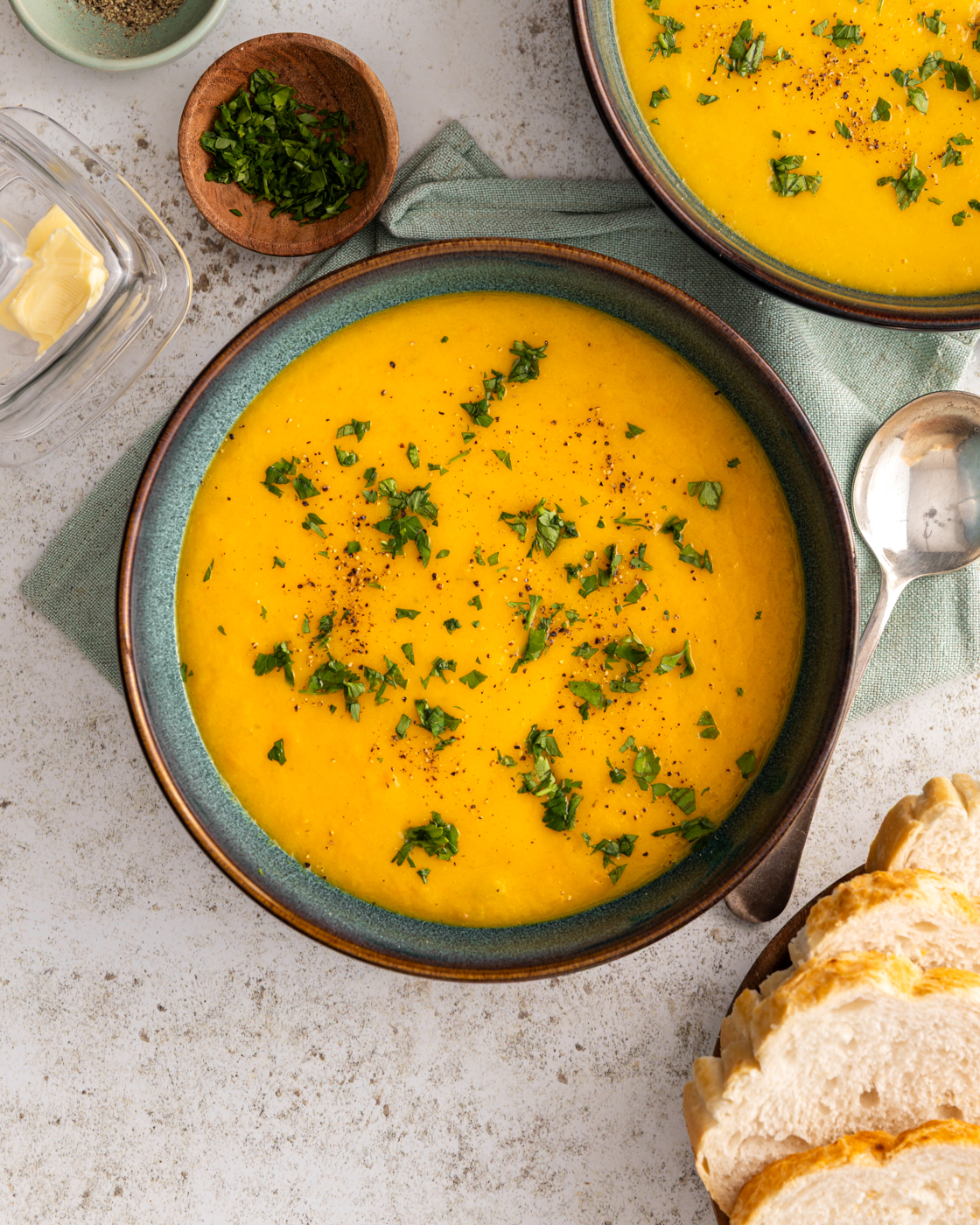
Sharon Hearne-Smith – Cooking with Essential Oils
Thu Jan 31 2019

Sharon Hearne-Smith – Cooking with essential oils
written by Melanie May
Meet Sharon Hearne-Smith, a food stylist, TV cook and mum to two young girls, Pearl and Poppy. She is also a cookbook author with two titles to her name, No-Bake Baking and The No-Cook Cookbook.
Another string to her many bows, includes teaching people how to use essential oils to improve their health and their cooking.
I caught up with Sharon to find out more about her love and uses for essential oils for health, wellbeing and in the kitchen.
Tell us a bit about yourself and how you got into exploring the world of essential oils.
Food has always been my passion in life and I have been blessed to work for almost 25 years with food in the media as a food stylist and more recently as a cookbook author and TV cook. I have always been driven to inspire people to cook and eat healthy home-cooked food.
I’m also a Mum to two small girls and since having them, I feel more passionate than ever about living as healthy a lifestyle as possible and to encourage and show others how to do so also.
I feel strongly about the amount of synthetic fillers, preservatives and other chemical products we are all now (often unknowingly) exposed to daily in our food, personal products, home cleaning products and medicines and the detrimental effect it is having on, not just our environment, but of course our health and wellbeing. I’m thinking of allergies, skin, digestive and respiratory problems, the disruption of hormones and fertility and of course the big C to name a small few.
Luckily we are now blessed with a growing number of natural options. However, I always found myself researching and cautiously sourcing and trying new products. Discovering DoTERRA essential oils was a game changer for my family and I.
I am repeatedly astounded by the incredible effects these oils have on our physical, mental and emotional health and wellbeing. They provide a simple one-stop shop packed full of natural solutions for my home and family. I now couldn’t go a day (make that moment!) without the nourishment and support they provide for us.
There seems to be a rise in interest in essential oils as of late, why do you think this is?
People are becoming more aware of the chemicals and synthetics that come part and parcel with their everyday products. Mainly, because of health issues and concerns presented as side effects of these.
Essential oils have been around for a very long time, with most people familiar with the likes of lavender. However, even lavender often comes in the form of a synthetic based fragrance or product like air freshners, fabric softeners and candles for example.
A recent US study found that in urban areas, emissions from consumer goods such as cleaning supplies and personal care products (think air freshners, cleaning sprays, laundry detergent, hairspray, shampoo, deodorant, perfume etc) now contribute as much to ozone and fine particulate matter in the atmosphere as do emissions from burning gasoline ar diesel fuel. Think about it, these chemicals are all around our homes and many don’t make it up to the ozone layer as we are breathing them into our bodies.
Essential oils are no longer seen as reserved for those with alternative lifestyles, but are now mainstream for millions of families across the globe in their daily lives and lifestyles because they provide simple and natural solutions. Doterra’s essential oils provide cost effective healthcare right at your fingertips. They serve to empower those who use them by giving them back control of their health and wellbeing. Plus they are quite simply gorgeous!
Are all essential oils safe to cook with?
DoTERRA’s essential oils are Certified Pure Therapeutic Grade (CPTG). Each drop in every bottle is 100% pure essential oil (bottles of essential oils only have to have one pure drop of essential oil in them to declare they are ‘100% pure’ on their labels).
Each drop of DoTERRA’s oils are rigorously tested to ensure they contain no metals, synthetics, fillers or chemicals of any sort. Not all essential oil companies use the same high standards for producing essential oils, so their oils might not be as pure and therefore not suitable for ingesting. The purity of DoTERRA’s oils ensures a selection of them are safe to ingest.
I say a selection because not all can be. A good rule of thumb is to consider what you can already consume e.g. citrus like lemon and orange, herbs like basil and rosemary and flowers like lavender and rose, whereas it’s not safe to ingest oils like cedarwood or Siberian fir. It’s important to always read the labels which will distinguish if the oil is food grade or not.
Are there certain essential oils that you should avoid using in cooking?
Because of their chemical design, some essential oils can be used topically or aromatically, but are not safe for internal use. Even if they are high quality oils, the following essential oils should never be used for any internal use or for cooking due to their chemical makeup: Arborvitae, Cedarwood, Cypress, Douglas Fir, Eucalyptus, Spikenard, White Fir, and Wintergreen.
Tell us about cooking with essential oils and the benefits of doing so.
By adding oils to your food and drinks, you are not only providing more flavour, but you can simultaneously enjoy the internal benefits of a particular oil. Depending on which oil you use, you can reap internal benefits like support of the body’s systems, antioxidant support, digestive support, respiratory support, internal cleansing, and more. Using essential oils when cooking provides a unique way to experience the benefits of essential oils.
What should we look for in an essential oil for use in cooking?
When it comes to flavouring your food using essential oils, the options are limitless. Essential oils can help add potent flavour to nearly any drink, dessert, soup, meat, bread etc. Essential oil flavours can be divided into citrus, spice, herbs and florals.
The amount of essential oil you add to your dishes will depend on many different variables like the particular recipe you are making, how many servings you make, what kind of oil you are using, and your personal taste buds.
How should we use essential oils in cooking to get the most out of the oil’s flavour and therapeutic properties?
Essential oils are easily affected by heat. Cooking with heat can evaporate essential oils due to the steam, so it is best to add the essential oil at the end of the recipe, if possible. The less time the essential oil is exposed to heat, the more flavour it will retain.
Of course, it is not always possible to add the essential oil later, especially when it comes to baking or steaming. If your recipe requires that you bake, steam, simmer, or boil, and you cannot add the essential oil at the end, simply add a larger amount of the oil, as some of the oil’s flavour will be baked, steamed, simmered, or boiled out. If you plan to add the essential oil at the very end when your dish has been removed from heat, a much smaller amount will be needed.
For someone who’s just starting to get into essential oils, what’s an easy recipe to make at home?
To help give confidence in getting started cooking with DoTERRAs essential oils, some quick additions of oils to recipes include citrus oils like wild orange, lemon or grapefruit in dressings, yoghurt or smoothies. Cilantro and lime are delicious stirred through guacamole and rosemary or thyme oil blended with olive oil before dressing roast or boiled new potatoes or for dipping bread into.
What are some of your go-to recipes and/or current favourites for cooking with essential oils?
Baking is where it’s at for me right now. I use spice oils like cinnamon, clove and ginger a lot in biscuits and pastry as well as citrus oils like wild orange, bergamot and lemon in cake mixtures. Peppermint is a firm favourite combined with chocolate in particular.
Sharon’s top tips for cooking with essential oils:
- It takes far less of an essential oil to flavour your food than if you were using dry seasonings, spices, or flavouring agents. Because essential oils are so potent, even the tiniest amount can add a serious blast of flavour to your dish. Often, even a single drop of an essential oil can be too overpowering, especially if the oil is particularly strong.
- When you first start experimenting with essential oils and cooking, it is best to use the toothpick method—dip the tip of a clean toothpick into the essential oil bottle and stir the toothpick into your ingredients. This will allow you to add the smallest possible amount of the oil, so that you don’t risk ruining the dish by adding too much flavour. After you’ve stirred the toothpick around in the dish, do a taste test to see whether you want to add more of the oil or not. This is the safest way to slowly add flavour to your dish without ruining it by using too much oil.
- When cooking with essential oils, it is best to use cookware that is stainless steel, ceramic, or glass, as essential oils can potentially damage some types of plastic.
Sharon’s top 15 essential oils for cooking:
I like to consider oils for cooking in these four categories, which helps with selection when combining with other ingredients and recipes.
- Herbal: peppermint, basil, rosemary, cilantro, marjoram
- Floral: rose, geranium and lavender
- Spice: cinnamon, clove, ginger
- Citrus: wild orange, lemon, lime and bergamot
Want to learn more?
Sharon regularly hosts free, in person or online, essential oil classes . If you would like to learn how you can take back control of you and your families natural health and wellbeing naturally please get in touch with her through her Facebook or Instagram accounts or her email: hello@sharonhearnesmith.com.
My current favourite recipe is my Lemon and chia seed power balls, which are ideal to help support the festive feasting come-down. They allow me to have a bite sized treat, packed full of nourishing ingredients and with a side order of antioxidants and detoxing from the lemon essential oil. Kids will love making and eating these also.
Sharon’s recipe for lemon and chia seed power balls
These tasty power balls are really quick and easy to make. They are packed full of nutritious ingredients like chia seeds which are high in fibre, protein and omega 3 fatty acids. Use pumpkin or sunflower seeds instead of almonds for those with a nut allergy. Omit the wheatgerm and use gluten free oats if gluten intolerant. Coat the balls in chopped nuts, desiccated coconut, raw cacao powder or chopped goji berries if liked. Kids will love to get involved with making these.
Makes 12 (or 24 smaller balls)
- 75g Medjool dates
- 75g dried apricots
- 50g almonds
- 25g rolled oats
- 2 tsp chia seeds
- 1 tsp linseeds
- 1 tsp wheatgerm
- ¾ tsp turmeric powder
- 14 drops DoTERRA’s lemon essential oil *
Method:
- Line a plate with parchment paper and set aside.
- Place the dates, apricots, almonds, oats, chia seeds, linseeds, wheatgerm, turmeric and lemon essential oil in a food processor and blitz until the mixture is smooth and sticky.
- Using damp hands, shape the mixture into 12 even sized balls (just over 20g each) arranging them on the plate as you go.
- These can be enjoyed straight away. Alternatively, they will keep in the fridge, layered between pieces of parchment paper in an airtight container, for up to a week.
For a twist…
Switch the DoTERRA lemon essential oil with wild orange essential oil for a different citrus blast!
Note:
* DoTERRA’s essential oils are Certified Pure Therapeutic Grade and so many of them, including their lemon and wild orange oil, are suitable for ingesting.
